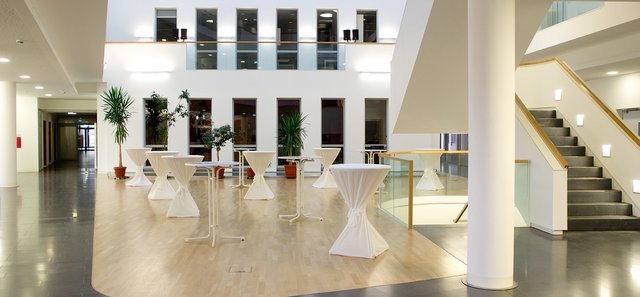Dear all,
the next talk in the “NeuroCommunications” seminar series will be held by:
Prof. Matthew Larkum
Humboldt University, Berlin
on April 18th 2023, 3pm
in the Ebbinghaus lecture hall
and will be titled: The Dendritic Integration Theory of Consciousness
Ph.D. students (also external to LIN) will have the special opportunity to join the speaker for lunch at LIN on April 18th 2023 at 12.00 pm.
Don’t miss your chance to talk with Prof. Matthew Larkum and reserve your time slot via email to the host: alessio.attardo(at)lin-magdeburg.de
Abstract
Breakthroughs in the understanding the cellular basis of anesthesia suggest that local mechanisms are essential for explaining loss of consciousness. This in turn leads to hypotheses about the essential neurobiological components of consciousness. Here, I show how the biophysical properties of pyramidal cells allow them to act as gates that control the evolution of global activation patterns. In conscious states this cellular mechanism enables complex sustained dynamics within the thalamocortical system, during unconscious states such signal propagation is prohibited. Dendritic Integration Theory (DIT) suggests that the hallmark of conscious processing is the flexible integration of different data streams at the cellular level. This cellular integration mechanism provides the bedrock for a novel neurobiological theory of consciousness and makes specific and testable predictions.
About the speaker
Matthew Larkum graduated from Sydney University with a thirst for solving the brain, he was then a post-doc in the laboratory of Nobel prize-winner Bert Sakmann for 6 years. It was there that he focused on hard- core electrophysiological and imaging techniques for understanding the computational properties of cortical neurons. He continued this focus in laboratory in Switzerland, first, and later in Berlin. The aims of the lab. are based on the hypothesis that cognitive power of the cortex derives from an associative mechanism built in at the cellular level such that the architecture of the cortex is tightly coupled with the computational capabilities of single cells. This hypothesis places new importance on the computational power of neurons that has ramifications for our understanding of cognition and for neurodegenerative diseases that disturb neuronal properties.
To learn more about our speaker, visit his lab website: https://www.projekte.hu-berlin.de/en/larkum

